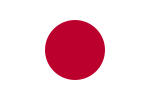This article may require cleanup to meet Wikipedia's quality standards. The specific problem is: extensive unsourced/unorganized sections and lists. (February 2023) |
| Part of a series on the |
| Culture of Japan |
|---|
 |
| History of literature by era |
|---|
| Ancient (corpora) |
| Early medieval |
| Medieval by century |
| Early modern by century |
| Modern by century |
| Contemporary by century |
|
|
Japanese literature throughout most of its history has been influenced by cultural contact with neighboring Asian literatures, most notably China and its literature. Early texts were often written in pure Classical Chinese or lit. 'Chinese writing' (漢文, kanbun), a Chinese-Japanese creole language.[1] Indian literature also had an influence through the spread of Buddhism in Japan.
During the Heian period, Japan's original kokufū culture (lit. 'national culture') developed and literature also established its own style, with the significant usage and development of kana (仮名) to write Japanese literature.[2]
Following the end of the sakoku policy and especially during the increasing westernization of the Meiji era, Western literature has also had an influence on the development of modern Japanese writers, while Japanese literature has in turn become more recognized internationally, leading to two Japanese Nobel laureates in literature, namely Yasunari Kawabata and Kenzaburō Ōe.[a]
- ^ Seeley, Christopher (1991). A History of Writing in Japan. BRILL. ISBN 9004090819.
- ^ kokuhu-bunka. Nihonshi jiten.com
Cite error: There are <ref group=lower-alpha> tags or {{efn}} templates on this page, but the references will not show without a {{reflist|group=lower-alpha}} template or {{notelist}} template (see the help page).